
The Story of G.I. Joe, also credited in prints as Ernie Pyle's Story of G.I. Joe, is a 1945 American war film directed by William A. Wellman and starring Burgess Meredith and Robert Mitchum. The film was nominated for four Academy Awards, including Mitchum's only career Oscar nomination.

The Fat Spy is a 1966 Z movie that attempts to parody teenage beach party films rather than spy films. It was filmed at Cape Coral, Florida. It is featured in the 2004 documentary The 50 Worst Movies Ever Made. Briefly released to theaters in 1966, it was rarely seen until the 1990s, when it was released to the public domain. Since then it has been widely released on DVD and VHS in various editions sold mainly at dollar stores.

A headspin is an athletic move in which a person balances on their head while rotating along the vertical axis of their body, usually without any other form of support. The move is commonly employed in the Afro-Brazilian martial art, Capoeira and in breakdancing. Though b-boy Kid Freeze is sometimes credited with having invented the headspin, the first known footage of the move is seen in the 1933 film, Wild Boys of the Road. One of the film's protagonists Edward 'Eddie' Smith, played by Frankie Darro, performs a Headspin at the 67 minute mark. There is also an older video featuring a headspin "A Street Arab" Thomas A. Edison, INC April 21, 1898 in which a preadolescent boy, dressed like a street urchin, performs acrobatic stunts for the camera. The dancer, Olav Thorshaug, performed Norwegian hallingdans shows in the United States of America around 1910-1920, incorporating the headspin in his dance.

Frankie Darro was an American actor and later in his career a stuntman. He began his career as a child actor in silent films, progressed to lead roles and co-starring roles in adventure, western, dramatic, and comedy films, and later became a character actor and voice-over artist. He is perhaps best known for his role as Lampwick, the unlucky boy who turns into a donkey in Walt Disney's second animated feature, Pinocchio (1940). In early credits, his last name was spelled Darrow.

William Augustus Wellman was an American film director, producer, screenwriter, actor and military pilot. He was known for his work in crime, adventure, and action genre films, often focusing on aviation themes, a particular passion. He also directed several well-regarded satirical comedies. His 1927 film, Wings, was the first film to win an Academy Award for Best Picture at the 1st Academy Awards ceremony.

Rochelle Hudson was an American film actress from the 1930s through the 1960s. Hudson was a WAMPAS Baby Star in 1931.

The Mayor of Hell is a 1933 American pre-Code Warner Brothers film starring James Cagney. The film was remade in 1938 as Crime School with Humphrey Bogart taking over James Cagney's role and Hell's Kitchen with Ronald Reagan in 1939.

A Girl Like Me: The Gwen Araujo Story is a 2006 American biographical drama television film directed by Agnieszka Holland and starring J. D. Pardo, Mercedes Ruehl, and Avan Jogia. It premiered on Lifetime in the United States on June 19, 2006. The film dramatizes the events surrounding the 2002 murder of Gwen Araujo, a transgender teenager who was murdered after acquaintances discovered that she had male genitalia.
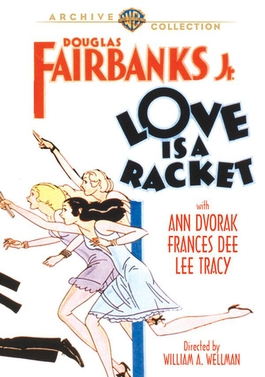
Love Is a Racket is a 1932 American pre-Code romantic comedy-drama film, starring Douglas Fairbanks, Jr. and Ann Dvorak. The movie was written by Courtney Terrett from the novel by Rian James, and directed by William A. Wellman.

Thoroughbreds Don't Cry is a 1937 American musical comedy film directed by Alfred E. Green and starring Mickey Rooney and Judy Garland in their first film together.
The Great Adventures of Wild Bill Hickok (1938) is a Columbia Pictures movie serial. It was the fourth of the 57 serials released by Columbia and the studio's first Western serial. The serial was the first to be produced by Columbia personnel; Columbia's previous three serials had been produced by the independent Weiss Brothers company, using Columbia's facilities.
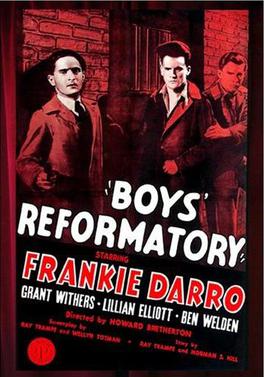
Boys' Reformatory is a 1939 American crime film directed by Howard Bretherton and produced by Lindsley Parsons for Monogram Pictures. The screenplay was written by Wellyn Totman and Ray Trampe based on a story by Ray Trampe and Norman S. Hall.
Nat Levine, was an American film producer. He produced 105 films between 1921 and 1946. Born in New York City, he entered the film industry as an accountant for Metro Pictures and became personal secretary to Metro head Marcus Loew.

The Fighting Temptations is a 2003 American musical comedy film directed by Jonathan Lynn, written by Elizabeth Hunter and Saladin K. Patterson, and distributed by Paramount Pictures and MTV Films. The main plot revolves around Darrin Hill who travels to his hometown of Monte Carlo, Georgia as he attempts to revive a church choir in order to enter a gospel competition. He seeks the help of a beautiful lounge singer and childhood friend, Lilly, with whom he falls in love. Through the choir's music, Darrin brings the church community back together all the while wooing Lilly.
Dorothy Wellman was an American actress and dancer. Wellman was the widow of film director William Wellman, to whom she was married from 1934 until his death in 1975. Wellman cast her in several of his films.

Mike is a 1926 American silent comedy drama film directed by Marshall Neilan. The film is a modest production, featuring Sally O'Neil and William Haines.
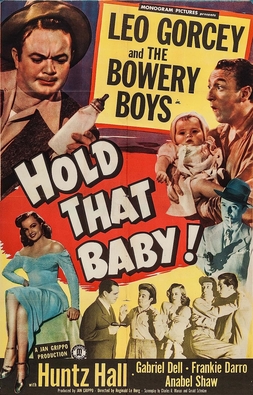
Hold That Baby! is a 1949 American comedy film directed by Reginald LeBorg and starring The Bowery Boys. The film was released on June 26, 1949, by Monogram Pictures and is the fourteenth film in the series.

Stranded is a 1935 American drama film directed by Frank Borzage and starring Kay Francis, George Brent and Patricia Ellis.
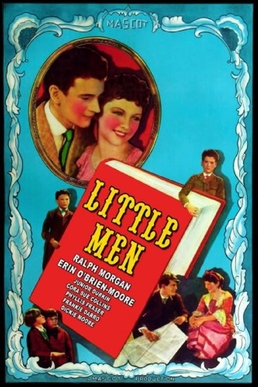
Little Men is a 1934 American feature film based on Louisa May Alcott's 1871 novel Little Men, starring Ralph Morgan and Erin O'Brien-Moore, directed by Phil Rosen, and was released by Mascot Pictures. It is a sequel to Little Women
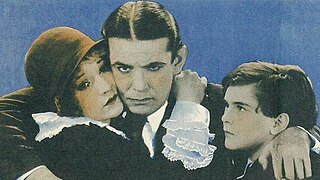
Blaze o' Glory is a 1929 American musical war film directed by George Crone and Renaud Hoffman. It stars Eddie Dowling and Betty Compson.


















